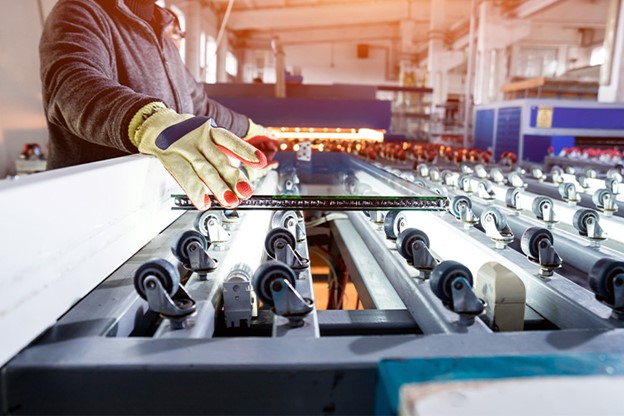Glass production requires a complex fusion of artistic skill and technical accuracy. Through this amazing process, raw ingredients are turned into lovely glass objects that we use every day. Come along as we explore the intriguing world of glass making as we go behind the scenes of glass manufacturing companies in India.
Raw Materials and Quality Assurance
Modern glass manufacturing companies in India require the use of high-quality raw materials. Limestone, soda ash, and silica sand are carefully chosen and combined in the right amounts. Due to quality control procedures, only the best materials are utilized, ensuring the finished product’s reliability.
Melting Furnace
The melting furnace is the center of a glass manufacturing facility. In this situation, the raw ingredients are heated to a molten mass by being heated to extremely high temperatures. This procedure calls for deft control to avoid contaminants and produce the required glass composition.
Glass Molding Methods
Once the glass has melted, many shaping methods are used:
Blowing:
By skillfully blowing air into a tube, glassblowers shape the molten glass into beautiful objects like vases and ornaments.
Rolling:
Molten glass is rolled on a metal surface to create flat sheets for windows and mirrors.
Tempering and Annealing
The newly created glass undergoes a process called annealing to increase its durability. The glass is carefully cooled down over time to remove internal strains and prevent it from fracturing or cracking. Rapid heating and cooling are used to manufacture tempered glass, which is used in car windows and cell phones for specific applications requiring enhanced strength.
Decorative Methods
Through a variety of ornamental approaches, the artistic nature of glass manufacture is revealed:
Glass Cutting:
Skilled artisans carefully cut and polish the material to produce elaborate patterns and designs on glass surfaces.
Etching:
Chemical procedures etch designs onto the surface of the glass to create tasteful and intricate artwork.
Stained glass:
Stained glass is an ornate artwork of colored glass pieces frequently found in churches and old structures.
Glass Fusing:
Combining several pieces in a kiln makes fused artwork distinctive and vibrant.
The Glass Coloring Technique
Glass coloring demands specialized knowledge and exactitude. To generate a variety of colors, manufacturers add metal oxides and minerals to the raw material mixture during the melting process. For instance, using gold can create red or pink glass, whereas adding copper oxides produces bluish-green glass. The coloring procedure creates a wide range of design options and gives glass objects a vivid feel.
Inspection and Packaging
Quality control is a crucial stage in glass production for glass manufacturing companies in India. After all the operations are finished, each glass product is thoroughly inspected for flaws or inconsistencies. This incorporates both automatic assessments using cutting-edge technology and visual examinations. The dedication of glassmakers is demonstrated by their devotion to ensuring the quality of every product.
The glass items are carefully wrapped and made ready for delivery when the quality check is finished. Glass is delicate; hence, the packaging considers that and uses materials that provide the best protection. This makes sure the goods arrive at their destination in flawless shape.
Wrapping Up
In conclusion, the art and science of making glass, an expertise proudly carried by glass manufacturing companies in India, is a testament to human intellect and innovation. We are extremely proud of our manufacturing process’s caliber, accuracy, and sustainability. Remember its journey from raw ingredients to a finished product the next time you hold a piece of glass from AIS Glass.

